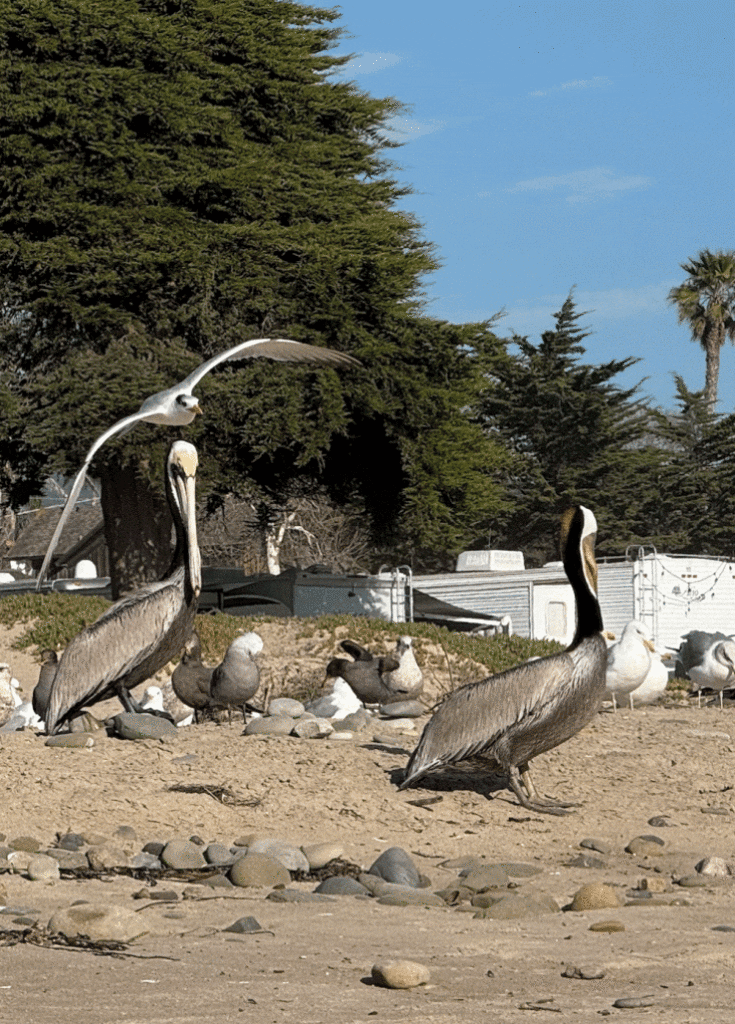
by Karen Telleen-Lawton, Noozhawk Columnist – read original here.
February 24, 2025
I am still a bit bleary-eyed from movie-watching at the Santa Barbara International Film Festival (SBIFF).
While I belly-laughed at comedic dramas such as Magic Hour, I was most inspired by the rich diversity of documentaries highlighting important issues, such as “Desert Angel,” “Out of Plain Sight,” and “In the Red.”
Again and again, ordinary people in diverse situations rose to the extraordinary by listening to the truth of their internal compasses.
The 2025 film festival coincided with an article about diversity of another sort. UCSB’s Dr. David Tilman became a 2025 National Medal of Science recipient for research demonstrating that the number of species in an ecosystem is “the single most important factor for the health of that ecosystem.”

Specialization allows plants to coexist even as they compete, he found.
Nature honors diversity, but humans are less adept at seeing its advantages. If there is one reason to honor the diversity among us, it is to gain the wisdom that emerges from listening to, respecting, and learning from others with multiple perspectives.
That diversity comes along many dimensions, including age, abilities, gender orientation, race, region of origin, and more.
Despite our nation’s (tarnished) reputation as a land of immigrants, however, diversity is now in the crosshairs.
In the last decade or two, many organizations have launched diversity programs. The goal of programs around diversity, equity and inclusion (DEI) generally is centered on encouraging fair representation and participation.
The intent of DEI programs in businesses and nonprofits ranges from increasing cultural sensitivity and improving teamwork to encouraging fair treatment.
It may be a difficult or even impossible task. Some have found individual programs uncomfortable or even off-putting.
Natural or awkward, programs encouraging diverse opinions are a boon to the democratic process. This is why it is abhorrent that our head of state seeks only opinions which replicate his own and fires anyone who dares to express a unique opinion.
Without a free flow of ideas, there cannot be a healthy democracy.
Emerging from this political climate is the announcement of a 24-hour Economic Blackout on Feb. 28. The Blackout, originating from a group called The People’s Union, protests President Trump’s wholesale actions to eliminate federal DEI training and positions.
The nationwide protest urges Americans on Feb. 28:
· Not to make any purchases, if possible;
· Not to shop online or in stores;
· Not to shop at major retailers;
· Not to spend money on fast food or gas;
· Not to use credit or debit cards for nonessential spending;
· To boycott Amazon, Meta, Walmart, Nissan, Best Buy, Target, and other corporations who quickly abandoned their DEI programs under federal administration pressure.
A day without purchases can be difficult. Planning ahead can help, but if you must go out, they recommend shopping locally owned stores.
You could say corporations face a conundrum between appeasing the administration or having compassion for all Americans who want to be valued in society.
But corporations are made of people (in fact, they are legal people). They have choices.
Costco, for example, has resisted. In January, 98% of shareholders voted against a proposal to eliminate some DEI programs.
Listening to diverse perspectives can make for messier decision-making, but it usually makes for superior decisions.
Companies and organizations who work to retain a diversity of employees will be better situated for the future.
All of us can gain courage, becoming extraordinary, by acting in support of diversity.

Karen Telleen-Lawton, Noozhawk Columnist
Karen Telleen-Lawton is an eco-writer, sharing information and insights about economics and ecology, finances and the environment. Having recently retired from financial planning and advising, she spends more time exploring the outdoors — and reading and writing about it. The opinions expressed are her own.

